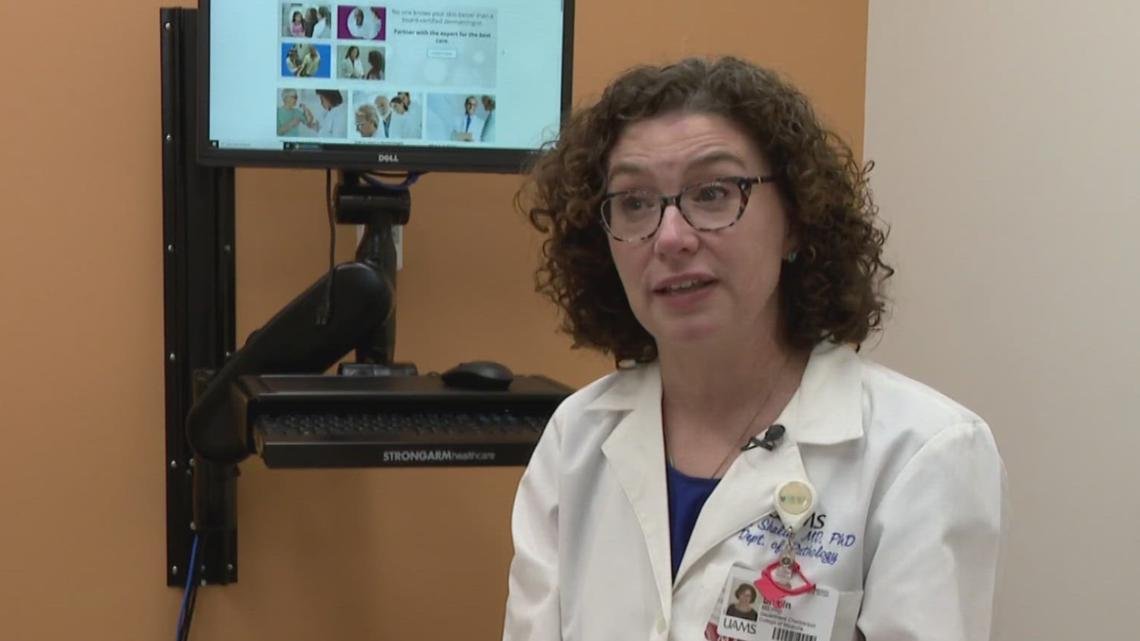UAMS expert answers your sun safety questions
An expert in skin cancer prevention at UAMS shares some ways to keep you and your family safe while you’re out enjoying the summer sun.
LITTLE ROCK, Ark. — In Arkansas, summertime means pools and lakes are packed and many families try to get in one last vacation before school starts— but, according to Dr. Sarah Shalin, an expert in skin cancer prevention and Chairman of the Dermatology Department at UAMS, getting some rays comes with responsibility.
Since July is known as UV Awareness Month, it’s the perfect time to learn some extra helpful tips to keep you and your family safe while enjoying the summer sun.
Dr. Shalin has some answers to some of the top questions you may have about sun safety. Here’s what she had to say:
Why is sun protection so important during the summer?
“Sun protection is absolutely critical in reducing your risk of skin cancer. Sun exposure is a major risk factor for squamous cell carcinoma, basal cell carcinoma, and melanoma. The good news is that sun exposure is a controllable risk factor for skin cancer.”
When should you avoid being out in the sun?
“I advise avoiding direct sun exposure during the hottest hours of the day, which are typically from 10 a.m. To 2 or 3 p.m. If you must be outside during those times, seek shade whenever possible.”
Who is most at risk for skin cancer?
“Fair-skinned individuals are at higher risk, but I want to stress that people with darker skin tones can also develop melanoma. I also strongly advise against using tanning beds.”
What are the best ways to protect your skin?
“I recommend using sunscreen with an SPF of at least 30 to prevent sunburns.”
She also adds to try and seek shade when you can and wear sun-protective clothing, such as long sleeves, hats, and sunglasses.
What’s the difference between mineral and chemical sunscreens?
“There are two main types of sunscreens: mineral, which are also called physical sunscreens, and chemical sunscreens. Mineral sunscreens contain ingredients like zinc oxide and titanium dioxide, while chemical sunscreens include ingredients like Avobenzone. Both types are protective, but mineral sunscreens may be less irritating for sensitive skin, and they can feel a little different when you apply them.”
What are the warning signs of melanoma?
“Melanoma is a very aggressive skin cancer and can arise in people that have all types of skin tones. So, if you’re looking at your skin and you notice something that’s new or changing, something that doesn’t go away after a couple of weeks, it may be worth getting that checked out by a board-certified Dermatologist”, says Dr. Shalin.


